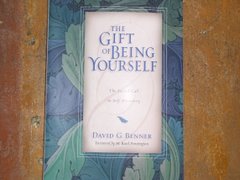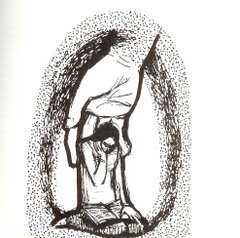Contemplatives in action
"I do what my Father does...the Father is in me and I in the Father"
Jesus does the work of his Father and lives a life of union with him. This claim of his runs right through John's gospel (John 5:19; 14:10).
Today, many committed people take up causes or ministries on behalf of Christ and then cannot understand when frustrations beset them in their work. Thomas Green S.J. in his book "Darkness in the Marketplace" takes up this 'problem' that faces many committed people. Martha (Luke 10) is taken as an example of a person who zealously seeks to serve the Lord (doing it 'all for him') but chooses to do it her own way. She therefore receives the Lord's gentle rebuke and invitation to choose the 'better part'. Of course as Green points out, Martha was fortunate to hear the Lord's correcting voice directly....how do we decide whether God is speaking to us - even 'rebuking' us - through the opposition and criticism of others, or whether they are really working against God in opposing us? This, Green tells us, requires discernment - the place where prayer and action meet.
I believe many committed Christians today are like Martha. We choose what we believe God does, or should want; indeed what we want the Lord to want. Green calls this 'working for God'. Indeed it is done out of love for God but it is a gift we choose for him rather than the other way round. Then we zealously go about our choices and when things do not work out we see it only as the opposition of blind, lazy, narrow minded people. I personally find this a lesson I have to learn and relearn. Although I would like to think of myself as one following a contemplative path, I am also drawn to taking on a lot of activity. Just speaking on a human level, I fail to realize that if my workload is the same as it was ten years ago, I will soon 'feel' the effects...for my energy levels are not what they were then! But even more important than just the physical considerations is how contemplation meets action. Green calls the Martha way of doing things 'working for God'.....and the better way is called 'doing God's work'. Yes, many times when I face the turmoil of over-busyness, I have stopped to ask 'what's happening, Lord?'. Action (and all the questions that arise from it) leads us back to contemplation....going back to the Lord to listen again. And often I have to hear the Lord's gentle chiding: 'who are you doing this for?' and I know that I have just been 'working for God' again.
Jesus was so clearly a "contemplative in action" (a term used by St. Ignatius of Loyola). He spent much time alone in prayer but his works speak volumes about the unity of mind and spirit that he had with his Father. When we contemplate his life, we are drawn slowly but surely into the rhythm of living an integrated life before God. Modeling our lives after Jesus means we embrace both contemplation and action. Both. Not one or the other. Our active involvement in the world must flow from a life of deep communion with God, where his desires become ours. I believe this is the path to be-coming the Beloved.







+223.jpg)


























4 comments:
I agree with you, Lilian. We are all called to be "Mary" and "Martha", not either/or. It is from the reservoir of living water in our inner life that outflows to give life giving water in our outer life.
And there is a practice from Ignatian spirituality that I find helpful for 'discerning': the daily Examen, that helps us as Thomas Green says, grow into the habit of discerning love.
I always wonder whether the daily examen is Martha works or Mary contemplates?
Ha Alex, that is a good question. The examen is the one spiritual practice St Ignatius told his fellow Jesuits not to miss even if they had to miss daily prayer due to unforseen circumstances. Guess we can also "find God in all things" in a less structured way by simply "listening" in contemplative silence. Well, as you know Ignatian spirituality is very structured - good for orderly people but after a time when we hit the "dry well" we need to turn to John of the Cross, Teresa of Avila etc.
Post a Comment